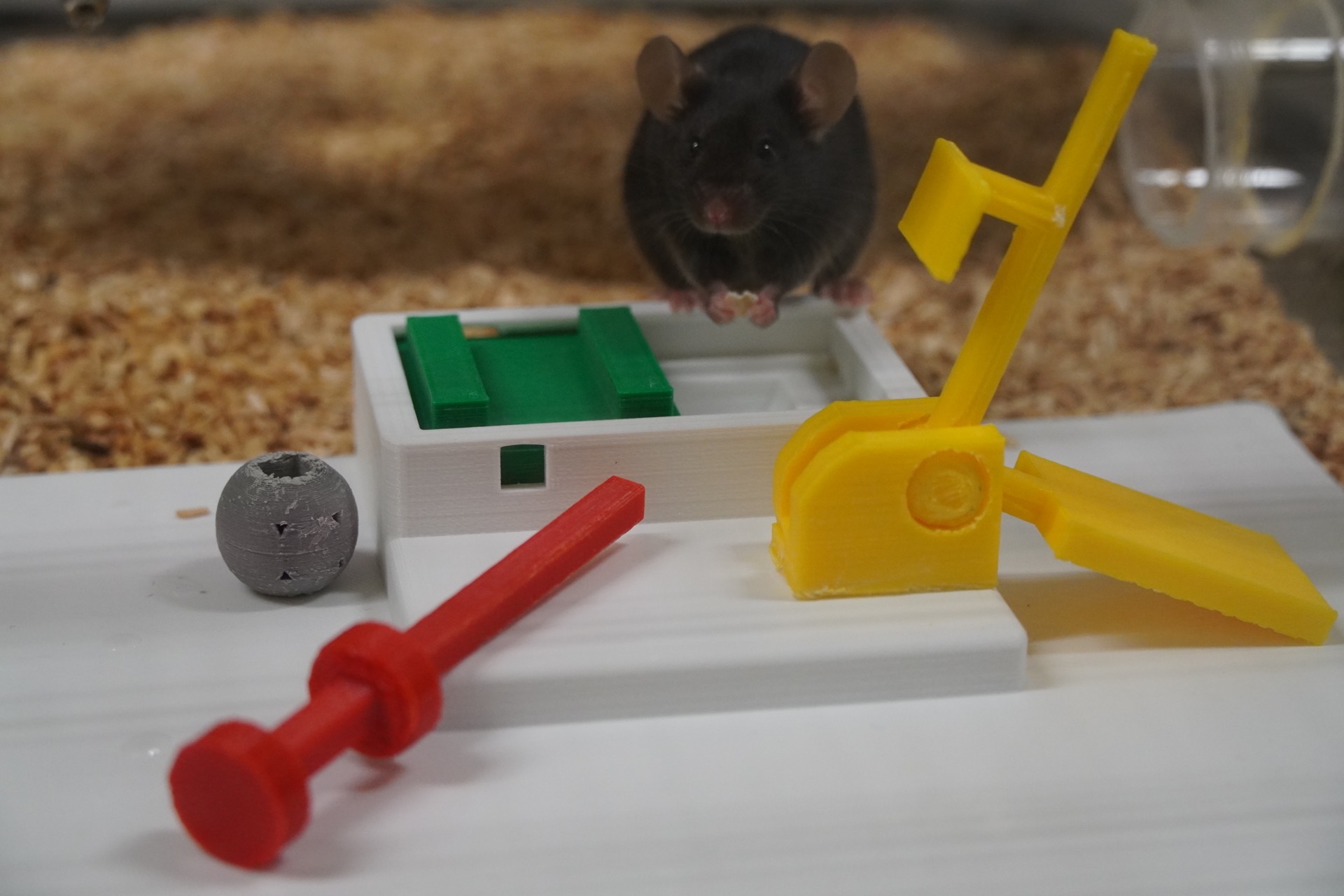Mouse lock box
Are mice considered intelligent according to SCIoI’s definition?

Photo by Katharina Hohlbaum
In this project, we aim to understand whether mice are considered intelligent for the purposes of SCIoI. We center our experiments around what we call behavior 1 (i.e., “Escaping from an escape room”). The basic experimental setup includes a home cage connected to an alley that leads to the test compartment. In the test compartment, so-called lockboxes are presented to the mice. A lockbox is a mechanical puzzle that is locked by different locking mechanisms of varying complexity, that requires a sequence of steps to be solved in a specific order. To motivate the animals to open these lockboxes, the puzzles are baited with a food reward (i.e. an oat flake). However, the mice can freely choose whether to engage with the lockboxes or not. To characterize and formalize the mouse behavior, we recorded the scene with cameras from three different perspectives. We developed a custom data analysis pipeline, consisting of automatically detecting the lockbox parts and mouse body parts in each camera, reconstructing the scene in 3D, and dynamically tracking the degrees of freedom of a skeletal mouse model. We find that mice get better at opening the lockbox over time and are currently in the process of identifying the underlying principles of the observed increase in performance.




